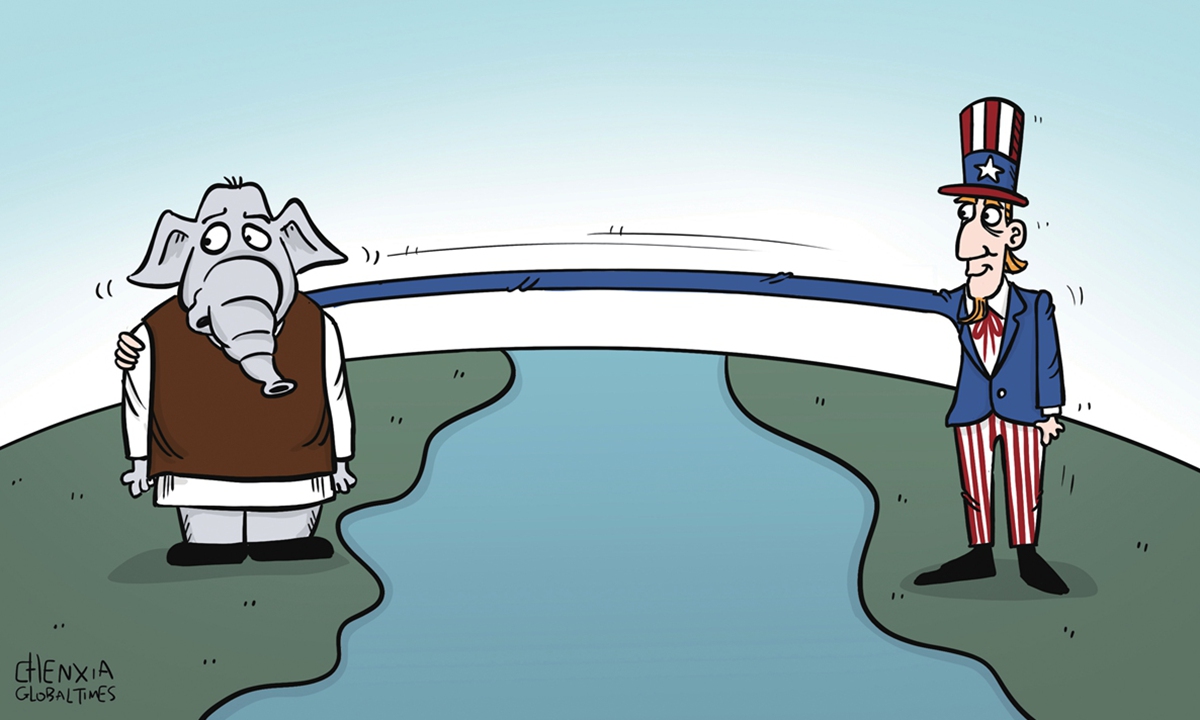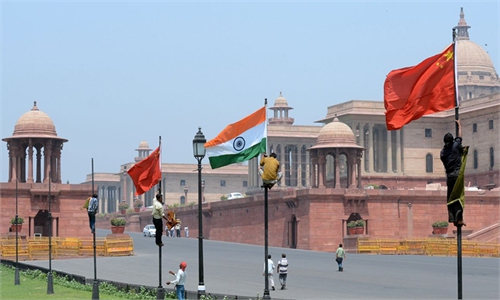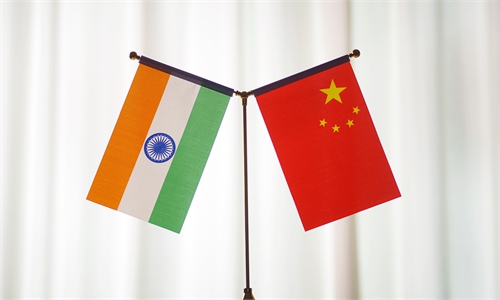
US, India Illustration: Chen Xia/GT
The US and India will hold the fourth round of "2+2" foreign and defense ministers meetings in the third week of January in Washington DC, according to Indian media.
This mechanism started in 2018, focusing on bilateral diplomatic policies, national defense and strategic affairs. All four members of the Quad have developed a "2+2" mechanism.
The US and Japan have decided to hold their 2+2 meetings in January online due to the Omicron variant, while US and Indian officials will continue to meet in person in Washington DC. This doesn't mean India is more important than Japan to the US. Instead, this shows the US needs to make more efforts to rope in India, as Tokyo is already an ally that obeys Washington in almost every way.
It is obvious that the US and India have become closer in recent years, moving toward forging an alliance with a main focus on China. As for the US, the reason is simple: It cannot accept that China is narrowing the competition gap and even surpassing it. However, the US is not strong enough to contain China on its own, so it has to gang up with others to form a strategic blockade. But in the US alliance system, its allies in Europe are mostly concerned about Russia and are not that interested in or capable of containing China.
In Asia, South Korea mainly relies on the US with a focus on North Korea. But China is South Korea's largest trading partner, and without the support from China, the Korean Peninsula can hardly realize peaceful reunification. If Seoul takes Washington's side to contain Beijing, it will put itself in danger in terms of both economy and security. Getting along with both China and the US is optimal for South Korea in terms of its interests, so Washington cannot expect too much from Seoul. In the meantime, ASEAN is clearly aware that a China-US strategic confrontation would divide Asia and marginalize ASEAN in Asia-Pacific affairs, so the bloc has repeatedly vowed not to take sides between the two countries.
Only Japan and Australia follow US suit, but their subservience is not enough for the US to besiege China. This being the case, the Trump administration put forward an Indo-Pacific Strategy and took advantage of the Quad to contain China. The Biden administration has continued this Indo-Pacific Strategy and elevated the Quad dialogues into summits.
Meanwhile, India has border disputes with China, and now sees China as a bigger threat than Pakistan in the region. But India is not powerful enough to confront China alone. It must rely on outside forces. Therefore, some politicians and scholars in the US and India who bolster an alliance between the two see the two countries as natural allies.
To many observers, the US and India have indeed formed a quasi-alliance. In addition to the "2+2" meetings, the two countries have inked deals such as the Communications Compatibility and Security Agreement, and the Basic Exchange and Cooperation Agreement, a major defense pact for the exchange of classified geospatial intelligence between their armed forces. Additionally, regarding border friction between China and India, the US has expressed its support for India regardless of the truth.
Nevertheless, India and the US can hardly be genuine allies. First of all, the US is selfish and arrogant, doing whatever it wants across the globe and has already more than once harmed India.
Second, the US tried to woo India into the Western camp during the Cold War but failed. Now US national strength and status are in decline; it is not as generous an ally as it used to be, with mostly repeated acts of coercion and blackmail in the past years. For India, the timing is poor for forging an alliance with the US, with limited benefits to gain and the risk of damaging its own international image and status.
Third, India hopes to use the US to balance China. However, the US is planning to make India a footman, having them fully participate in its containment of China while keeping distance from Russia. The problem is, India's pursuit to achieve a major power status determines that it will not act as a pawn like Japan or Australia. The recent summit between Indian Prime Minister Narendra Modi and Russian President Vladimir Putin and the first-ever "2+2" meeting between Russia and India signaled India's answer of "No" to the US. Washington should also be aware of New Delhi's intent to take advantage rather than being taken advantage of.
From a global perspective, China and India hold more common grounds than India and the US in terms of building new political and economic world order, promoting the democratization of international relations, and dealing with climate change. The US cannot accept a strong China, but is it willing to see a strong India?
The author is a senior research fellow with the Academy of Regional and Global Governance at the Beijing Foreign Studies University and the president of the Chengdu Institute of World Affairs. opinion@globaltimes.com.cn


